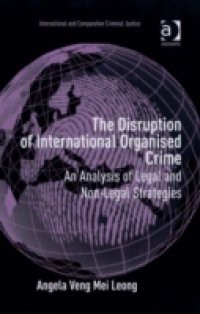Analyzing the structures of transnational organized crime, this book considers whether traditional mechanisms and national jurisdictions can tackle this increasing menace. Highlighting the strengths and weaknesses in the present methods of control, the book discusses the possibilities of developing more effective national and international strategies, the creation of non-legal mechanisms outside the traditional criminal justice system and the implications of 'disruption strategies'. The roles of law enforcement officers, tax investigators, financial intelligence officers, compliance officers, lawyers and accountants in enforcing both civil and criminal sanctions on organized crime are also considered.

